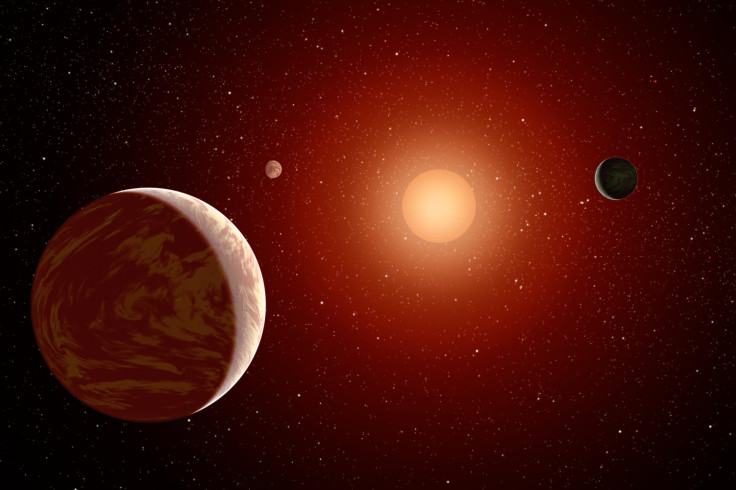Alien Signals: Scientists Detect Mystery Radio Pulses While Watching Red Dwarf Star

Mysterious, distant radio signals have reached Earth and scientists are trying to figure out what they mean and whether they were sent by aliens.
The signals came from a star 11 light years away, according to the Planetary Habitability Laboratory, a research lab that searches for habitable exoplanets and alien signals. A radio telescope at the Arecibo Observatory in Puerto Rico picked them up on May 12 while checking out red dwarf stars that have planets orbiting them, as part of a project to learn more about the “radiation and magnetic environments around the stars or even hint the presence of new sub-stellar objects, including planets.”
Read: Is This the Smallest Star in the Universe?
Red dwarfs are smaller, cooler and less luminous than our sun, and they are bountiful in the universe: accounting for perhaps 70 percent of the universe’s stars. Scientists have been looking closely at these stars in a search for a habitable planet that could harbor alien life.
Ross 128 is a red dwarf and although scientists have yet to find planets in orbit around it, it was one of the stars that the Arecibo Observatory was recently monitoring.
“Two weeks after these observations, we realized that there were some very peculiar signals” coming from Ross 128,” PHL said.
It described the signals as semi-periodic pulses and said they were not seen in observations of other red dwarfs made immediately before or after those of Ross 128, indicating that they were unique to the observations of that star.
According to the lab, it’s possible that the pulses came from stellar emissions similar to our sun’s solar flares or emissions from another object near Ross 128, although the group noted that there are not many of those. They also could have come from a satellite in high orbit around the Earth, or another manmade object, that passed through the line of sight between the radio telescope and the red dwarf.
The scientists plan to keep a close watch on the mysterious red dwarf to learn more.
“Each of the possible explanations has their own problems,” the group said. Still, “in case you are wondering, the recurrent aliens hypothesis is at the bottom of many other better explanations. … Therefore, we have a mystery here and the three main explanations are as good as any at this moment.”
Read: Are Aliens Real? The Number of Exoplanets Out There Suggests Yes
The Search for Extraterrestrial Intelligence, commonly known as SETI, has been alerted about the signals, according to Business Insider, and is looking into it — but it’s likely that interference from a manmade object is responsible for the confusion.
People who are not directly involved in the observations but are looking for some fun can weigh in on what they believe is the source of the signals in an online survey.
Abel Méndez, an astrobiologist at Arecibo and the director of PHL told Business Insider that successful observations would pick up the signal again, coming from Ross 128 and not anywhere else. “If we don’t get the signal again then the mystery deepens.”
We are still trying to figure out the origin of strange signal we got from a nearby star 😕, but ... pic.twitter.com/qiz5004D6m
© Copyright IBTimes 2024. All rights reserved.





















